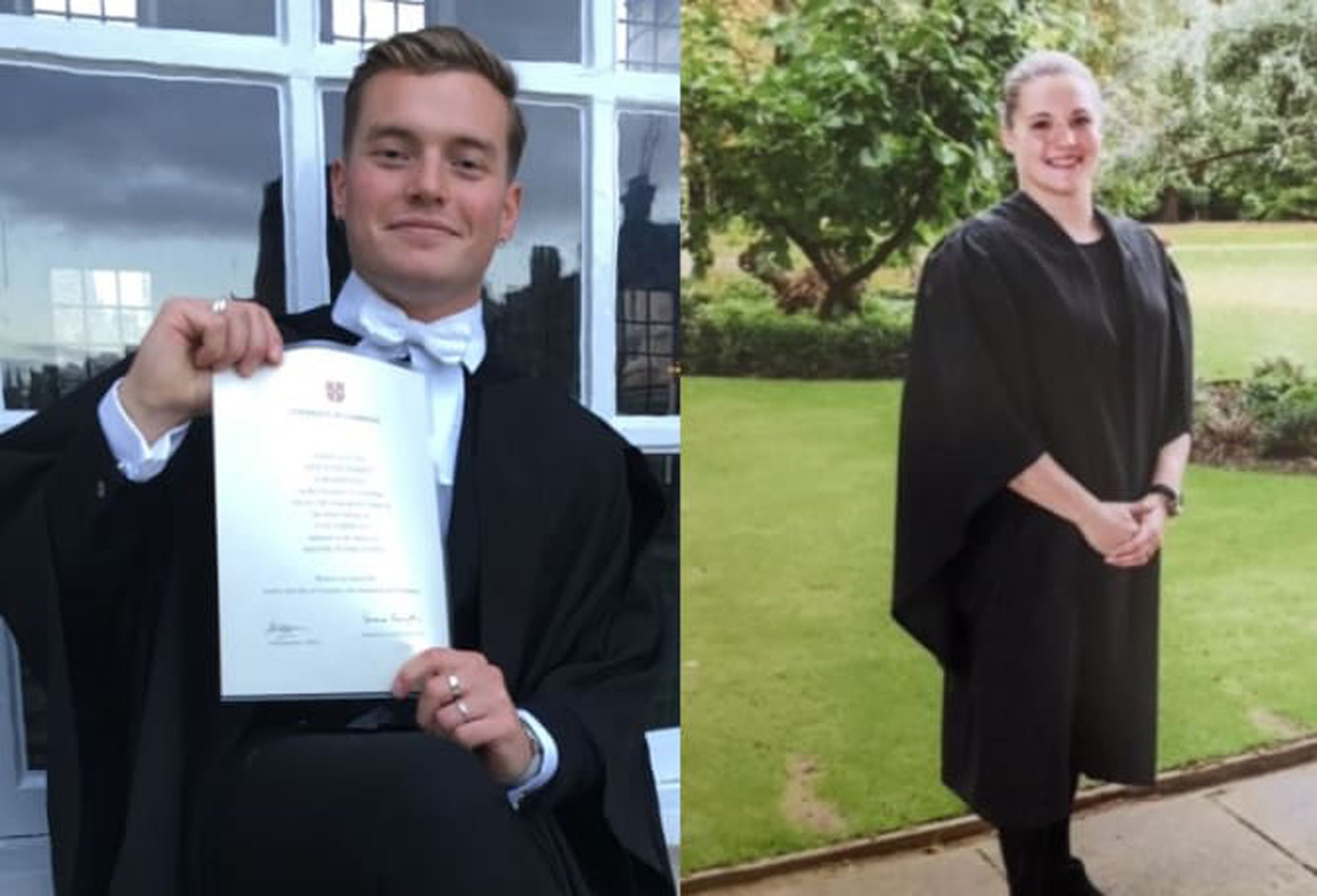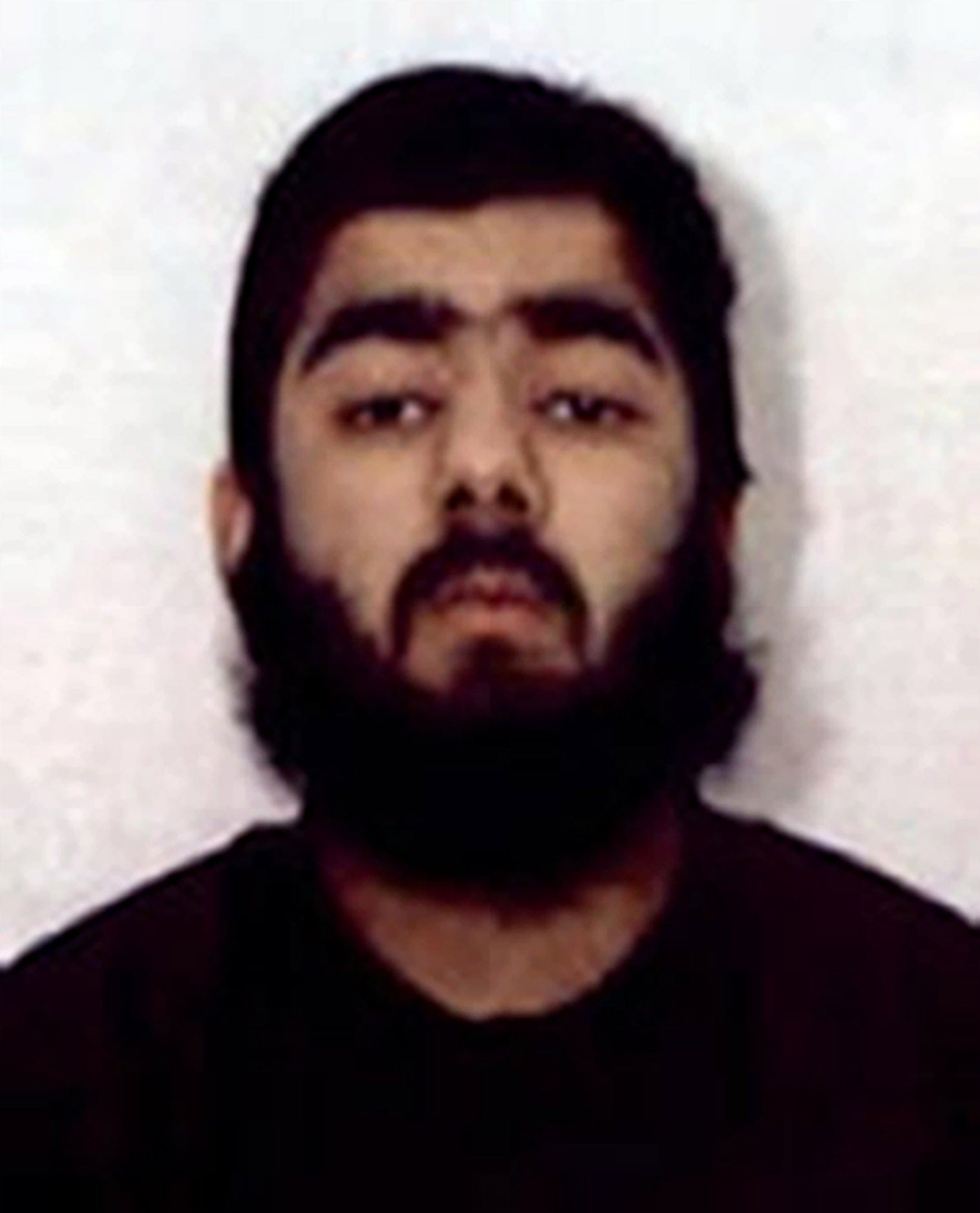Fishmongers’ Hall terror inquests: ‘Failures’ by security services contributed to deaths, inquest finds
MI5, police and probation officers monitoring Usman Khan did not spot the convicted terrorist’s plans
Your support helps us to tell the story
From reproductive rights to climate change to Big Tech, The Independent is on the ground when the story is developing. Whether it's investigating the financials of Elon Musk's pro-Trump PAC or producing our latest documentary, 'The A Word', which shines a light on the American women fighting for reproductive rights, we know how important it is to parse out the facts from the messaging.
At such a critical moment in US history, we need reporters on the ground. Your donation allows us to keep sending journalists to speak to both sides of the story.
The Independent is trusted by Americans across the entire political spectrum. And unlike many other quality news outlets, we choose not to lock Americans out of our reporting and analysis with paywalls. We believe quality journalism should be available to everyone, paid for by those who can afford it.
Your support makes all the difference.“Omissions and failures” by the authorities charged with managing a released terrorist contributed to the deaths of two victims in the Fishmongers’ Hall attack, an inquest has found.
Usman Khan murdered Jack Merritt, 25, and Saskia Jones, 23, at a prison rehabilitation event 11 months after he was freed following a jail sentence for preparing terrorist acts.
Attendees including ex-offenders fought Khan with makeshift weapons and a narwhal tusk, and chased him onto London Bridge, where he was shot dead by armed police on 29 November 2019.
Following joint inquests into the victims’ deaths, a jury found on Friday that they were unlawfully killed.
Jurors found that the injuries suffered by Mr Merritt and Ms Jones were not survivable, but that “omissions or failures” in the lead-up to the attack had contributed to the deaths.
They included “serious deficiencies” in the way Khan was managed following his release from prison, the training given to the staff dealing with him and “missed opportunities” by the security services to share their expertise and offer guidance.
Jurors concluded that there had been a “blind spot” to the risk Khan posed to the public because he was held up as a “poster boy” for Cambridge University’s Learning Together programme.
They also found faults with the organisation of the event at Fishmongers’ Hall, including a lack of communication between different parties, the failure to complete a risk assessment and “serious deficiencies” in how agencies considered his attendance.
In a joint statement read to London’s Guildhall by the head of the jury, members called Mr Merritt and Ms Jones “wonderful young people” and sent their condolences to their families.
“They clearly touched the lives of so many, ours included,” jurors said.
“We also wanted to take this opportunity to thank the astonishing individuals who put themselves in real danger to help and our incredible emergency services for their response both that day and every day.

“Once again to the families, we are so incredibly sorry. The world lost two bright stars that dreadful day.”
Mr Merritt’s father, Dave Merritt, said the arrangements for managing Khan following his release from prison were “not fit for purpose”.
He also described MI5 and West Midlands Counter-Terrorism Police as “complacent and passive in the face of Khan's extreme and continuing threat”.
Ms Jones’s uncle Philip Jones said the event organisers Learning Together, a prisoner education programme, appeared to have “scant regard” for safety, while state agencies also shared responsibility.
On Learning Together, he said: “It could be said that their single-minded view of the rehabilitation of offenders, using Usman Khan, in our view, as a 'poster boy' for their programme, significantly clouded their judgment.”
Despite being a “high-risk” category A prisoner – who had been involved in prison violence and radicalising inmates - Khan had been permitted to join Learning Together in 2017, which saw him take part in courses alongside students.
Shortly before Khan was automatically released from prison in December 2018, MI5 received intelligence that he wanted to commit an attack but did not share it with his probation officer.

After he was freed, Khan was monitored by MI5, counterterror police, probation staff, an electronic tag and a “Mappa” board of public protection agencies.
The inquests heard that none of them detected any intelligence that he was planning the attack, and that surveillance missed Khan purchasing knives and equipment to make a fake suicide vest days before.
Police and MI5 did not object to him attending a celebration to mark the fifth anniversary of Learning Together at Fishmongers’ Hall, or discuss it as a potential attack risk.
The terrorist was permitted to travel to London from his home in Stafford without an escort, and there were no searches or scanners when he arrived at the venue.
The inquests heard that Khan attended speeches and workshops before making his final preparations for the attack in the men’s toilets shortly before 2pm.
He taped two large knives to his hands and revealed a fake suicide vest previously hidden under his clothing, minutes after giving a speech saying how he had benefitted from the Learning Together programme.
The terrorist stabbed Mr Merritt multiple times after he entered the toilets by chance, before walking into the neighbouring cloakroom and stabbing Ms Jones fatally in the neck.
He also stabbed a Learning Together staff member and another former volunteer who had joined its programme at HMP Full Sutton while studying criminology.
The inquests heard that Khan “bypassed staff” who worked at Fishmongers’ Hall, even when he had the chance to stab them or threatened them with his knives.
An anonymous MI5 officer who gave evidence on behalf of the service said: “We agree with the police assessment that it is likely that Khan was seeking to target members of the Learning Together team.”
She said MI5 did not have any previous intelligence that Khan harboured hostility towards the scheme, and believed it to be a “very positive relationship”.
A separate inquest will start next week to examine the circumstances of Khan’s death.
Priti Patel, the home secretary, said: “It is important that the government and operational partners learn lessons to prevent further incidents like this, and we will also consider the inquest findings.”




